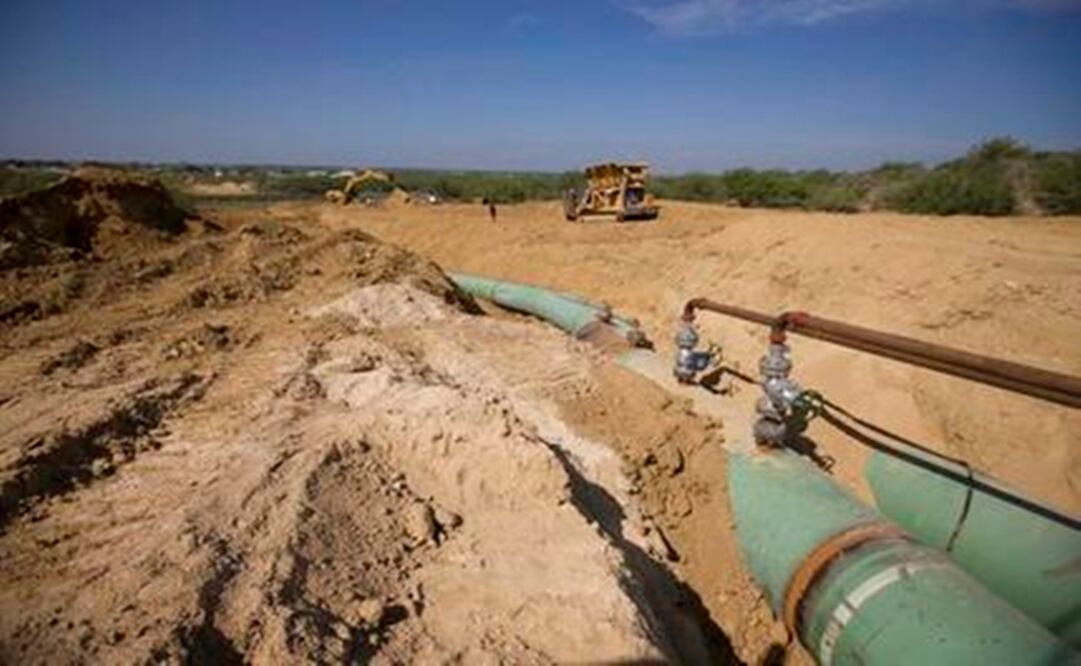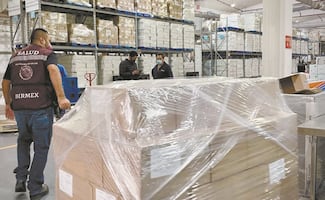Mexico is embarking on a strategy to combat illegal pipeline thefts that includes going after those who purchase and deal in stolen fuel as well as the thieves, said Mexico's Minister of Finance, Tuesday.
José Antonio Meade said it's a problem that costs Mexico somewhere between MXN$15 billion and MXN$20 billion pesos a year, or USD$780 million to USD$1 billion, and one that requires a holistic approach to solve.
Mexico's government wants to reduce the siphoning of gasoline and diesel from illegal pipeline taps by attacking "not only the supply but also the demand," Meade said, according to a transcript of remarks during a Q&A session released by the Ministry of Finance.
Besides quick-response actions against thieves, authorities must work to make the illicit business less profitable and make those who buy it face consequences, he said.
The topic is front-and-center in Mexico these days after gunbattles between the army and suspected thieves killed four soldiers and six gunmen last week in the central state of Puebla, Mexico. Armed gangs have gotten involved in the business of fuel thefts, and gunmen were said to have used civilians as human shields in one of the clashes.
Fuel thieves are also suspected of being behind a shocking crime in Puebla on May 2, when eight assailants raped a woman and her 14-year-old daughter, killed her toddler son, beat her husband, stole the family's pickup truck and left on them on a highway at night. In March, three state detectives were abducted and killed by a fuel theft gang allegedly with the help of the local mayor and police officers.
Meade said those who "tear at the social fabric, who in a very cowardly fashion hide behind ... women and children," cause problems for communities and are "terribly dangerous."
Meade acknowledged it's "very likely" that corrupt workers at state-run oil company Mexican Petroleum (PEMEX), are involved in facilitating pipeline thefts. He said officials are working with the company to identify them.
Officials are also looking at gas stations that may be selling stolen fuel, as well as the mass transportation sector. To that end, authorities raided 13 gas stations last month after detecting irregular fuel-buying patterns, Meade said.
"There was even a gas station that had been shut down (by authorities) for a year but was continuing to sell gasoline, which of course was stolen," he said.
The secretary said authorities are looking into technology that would allow them to better track illegal pipeline taps and "mark" gasoline to help identify fuel that has been stolen.
Meade also noted legislation passed in the Mexican Lower Chamber and pending in the Mexican Senate would make it easier to prosecute fuel theft.
"The theft is illegal, but possession of stolen gasoline ... since we don't catch them physically and flagrantly stealing, we often find it impossible to take legal action," he said.
The Puebla state Public Security Department reported Tuesday that in a series of raids it seized over 21,000 liters (5,600 gallons) of fuel and 12 vehicles apparently involved in thefts.
Some communities in Puebla and elsewhere have come to base much of their economies on selling fuel stolen from the thousands of taps that are drilled into state-owned pipelines each year. It can also be dangerous - on Sunday one such illegal tap exploded into flames.
Meade said Puebla is the state with the highest incidence of fuel theft, followed by Guanajuato and Veracruz.
bg
Noticias según tus intereses
[Publicidad]
[Publicidad]














